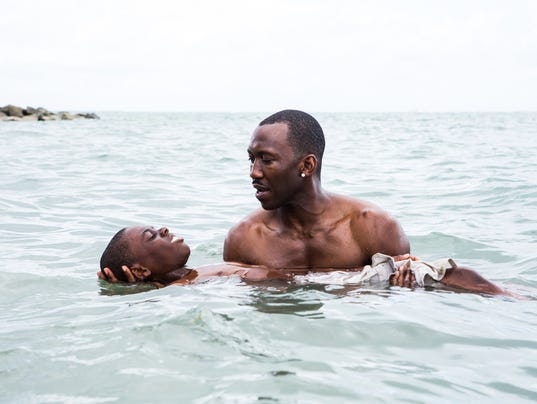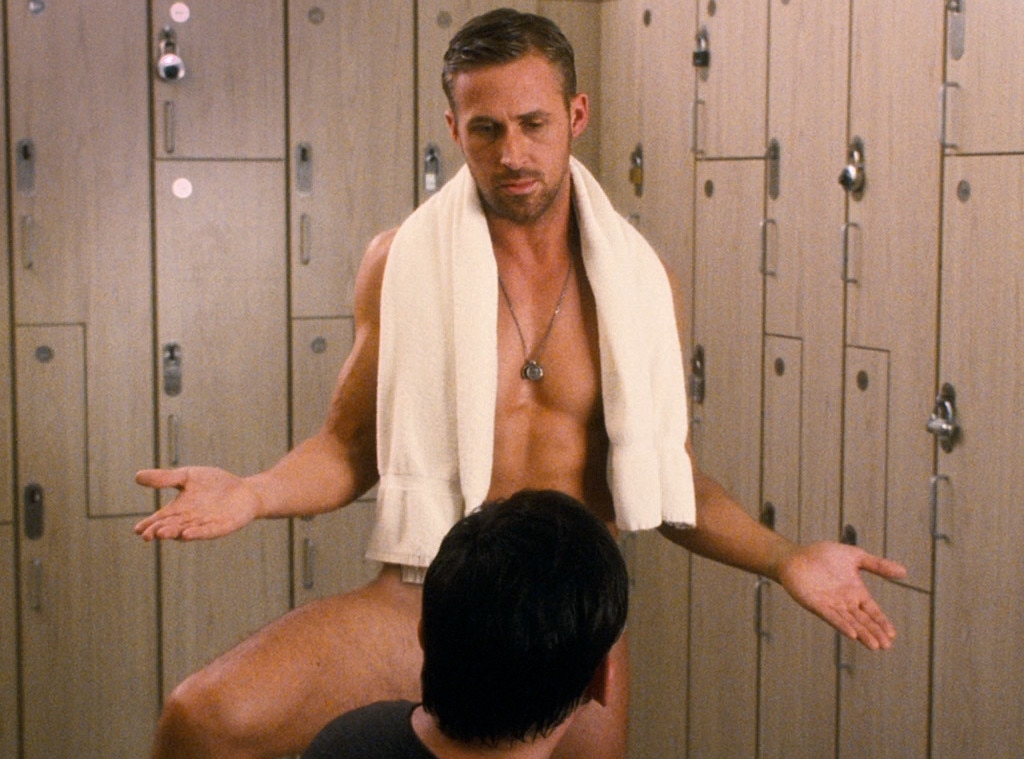Manchester by the Sea/Moonlight
Which of this Year’s Deserving, Devastating Drama Films Could Walk Away with the Top Honours?
The minorest of SPOILERS applies, regarding the basic premise of each film. No major plot details are discussed but, if you don’t want to know anything at all about either Manchester by the Sea or Moonlight before seeing them, go watch ’em and then come back and read this.
There are three frontrunners for Best Picture at this year’s Academy Awards. One of them – which could very easily waltz away with every one of the fourteen statues it’s been nominated for – is La La Land and, if you’re interested, you can check out our review of it here. The other two most likely winners are Kenneth Lonergan’s Manchester by the Sea and Barry Jenkins’ Moonlight. In stark contrast to La La Land, they are not feel-good excursions or overt crowd-pleasers but, instead, deeply impactful, sometimes horrendously upsetting dramatic pictures. In their execution and the issues they look at, each leans in as hard as any contemporary movie I’ve seen on matters uncomfortable, ambiguous and tragic. They’re, also, both pretty excellent.

Manchester by the Sea is a typically American (and, more specifically, Bostonian) story, a microcosm of desolation framed on an operatic scale. Casey Affleck plays Lee Chandler, an achingly miserable man, in a performance that is pretty much guaranteed to win him Best Actor. Lee works as a handyman in Boston; shown in the dead of winter, it’s a brick-hued, ice-cold city that perfectly reflects his stagnant sadness. In the film’s opening moments, we’re greeted to a humdrum montage of his day-to-day life, explaining repair procedures to tenants, getting passively hit on and casually losing his patience at the drop of a hat (“I don’t give a fuck what you do”, he tells one woman in a mild, matter-of-fact way that cuts deeper than if he had shouted it.) At the end of his day, he gets drunk at a local pub, rebuffs yet another woman’s advances and then starts a fight with two random dudes who kinda look at him funny. He is not, suffice it to say, a happy person.

Then tragedy strikes, and Lee has to drive to his hometown of Manchester by the Sea to deal with the fallout. His older brother, Joe (Kyle Chandler), has had a fatal heart attack and has left instructions in his will that Lee is to be the parental guardian of his 16-year-old son, Patrick (Lucas Hedges), despite Lee believing that he is fundamentally incapable of doing so. As the film goes on, we learn the root of Lee’s hesitance, to being a father figure and returning to the place he used to live. In this way, Manchester by the Sea becomes a pointedly naturalistic look at the process of grieving and attempting to live through all manner of tragedies, both fresh and old. It’s almost unbearably true to life in this way: yeah, everyone carries the burdens of the past like splintering crosses on their backs, but they also keep their phones on vibrate at a funeral just in case one of their two girlfriends texts them. Y’know, regular people stuff
Beyond the melancholy and expert performances, Manchester by the Sea‘s strongest trait is its unusually humanistic screenplay, brought to life with understated direction and sharp, canny editing. In these aspects, against all odds, the movie often finds the time to be incredibly funny in between all the misery, in ways unexpected and profound. When Patrick decides to go see his dad’s body, we’re conditioned to expect a scene of him standing tearfully over his deceased father. Instead, there’s a quick edit to a shot that lasts all of ten seconds: Patrick walks into the morgue, sees the body and with a, “Yep, ok, thank you”, he walks out. It’s not haha funny, but it elicits a small giggle in the way it plays with audience expectations. The film is punctuated with small, perfect details like this, a mass of incidents that compose the minutiae of these peoples’ lives, showing the ways in which they are affected by death while striving to keep living, which is pretty much as human as it gets.

Moonlight, in contrast, is not like most American films, give or take Boyhood. It focuses on the sort of characters very rarely seen in major motion pictures, exploring themes of alienation, prejudice and the search for acceptance in an environment that’s not conducive to self-discovery. Told in three distinct chapters, Moonlight follows Chiron’s progression from a young, bullied kid (Alex Hibbert) to a gangly, withdrawn teenager (Ashton Sanders) and, finally, a grown man (Trevante Rhodes) who, despite the airs he gives off, is still clearly uncomfortable in his own skin.
Raised in a more gritty, blacktop section of Miami, Florida than most films would have us be familiar with, Chiron’s hardships start from an early age, something his drug-addicted mother (a brutally unvarnished Naomie Harris) attributes to his burgeoning sexuality. That is to say, Chiron is gay, which is apparent enough even as a kid that others feel the need to bully him. It’s only when he meets local dealer Juan (Mahershala Ali, in perhaps the best performance of the year) that Chiron begins to understand the value of truly knowing and accepting himself. It sounds trite but, believe me, it transcends all those pat notions and platitudes of “Just be yourself”-ness to become it’s own, rich examination of empathy, of the power one can wield when they reach out to steady another.
Juan and Chiron only have a handful of scenes together, but they’re all so unique and indelible that I wouldn’t hesitate to call them iconic. While at the beach, Juan takes Chiron into the waves and holds him above the surf, helping him to float and learn to trust someone else with his life, when he’s had nothing but shit rain on his head for the entirety of it. In their final moments together, Chiron asks Juan about the word “faggot”, an epithet he’s clearly had hurled his way countless times. Juan, with a level of compassion that could quite literally stop your heart, explains the ugliness of the word and how it could never apply to Chiron, before having to answer an even tougher question about himself that forever alters their relationship.

Barry Jenkins’ camera movements throughout are quietly stunning, such as when he frames the opening two minutes of the film in an unbroken shot that follows Juan from his car to one of his slingers. As they talk and survey the sweltering landscape of suburban Miami, Jenkins’ camera circles the two of them, the frame ever-so-slightly askew, mimicking the tilt and swagger of a curious child who’s slogging through the oppressive heat. Jenkins situates us so precisely that, for the remainder of the film, we feel like intruders, voyeurs in these people’s lives. Ok, yes, that’s true of basically all cinema, but in this instance it’s a much more profound effect, like we’re avid witnesses to an unsung suffering. When paired with the film’s atypical subject matter, this approach is not only compelling but startlingly appropriate. How else could you present a movie about the struggle to be seen than as a document quietly snatched away from its subjects, presented to those who were willing to care?
So, no fucking about: Moonlight is, to me, the better film. Will it win? Well, 12 Years a Slave did, but then so did Birdman and a host of other films about white people struggles. And framing this as a black movie vs. white movie dichotomy is pretty reductive, anyway. Both have value and are supremely justified in being nominated. Honestly, I wouldn’t be mad at seeing either of them take it… even though it’ll probably be La La Land. Just sayin’.

One Reply to “Manchester by the Sea/Moonlight”